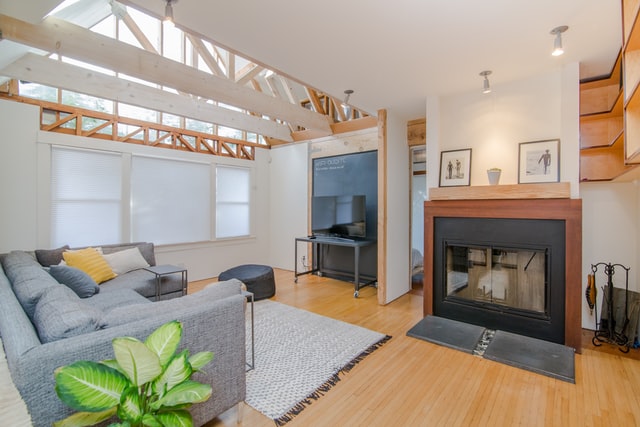COVID-19 hasn’t slowed down the real estate market. After an initial drop-off in early April, buyer demand has rebounded to pre-pandemic levels. In addition, mortgage rates are at record-low levels, and inventory remains low. A buyer’s market is ideal for anyone looking to buy a home, as prices drop with lower demand and higher inventory. If you’re on the cusp of buying a home during the pandemic, keep the following in mind.
The result is a perfect storm for home sellers, where competition is high and 42% of buyers enter bidding wars.
1. Don’t be in a rush
In a buyer’s market, there are more homes for sale than buyers, so you have an advantage when you’re shopping for a new home.
With lower competition, you’re less likely to enter into a bidding war. That’s not to say there will be no competition in a buyer’s market – you’ll still need to act quickly if you find a desirable home. Take your time and learn the market, but don’t be afraid to act.
2. Take virtual home tours

SOURCE: UNSPLASH
Virtual home tours allow you to get a solid overview of whether a property might be worth pursuing.
Even when the pandemic passes, a virtual home tour could be a good idea, rather than wasting time seeing every home in-person, especially if there’s no rush.
3. It’s a great time to negotiate
You should negotiate the best price, even if you’re not naturally inclined to haggle. Start by making an offer below market value. Because the home is likely to have fewer offers in a buyer’s market, you have room to negotiate.
4. Take control of the closing date
Are you concerned about all the logistics of packing up your belongings and moving homes? You can negotiate the closing date on the home, so you’ll have time to focus on moving. Controlling the closing date will give you the time you need to make stress-free moving arrangements.
5. Ask for concessions
If you’re viewing homes in need of paint, new carpeting, or other improvements, try requesting concessions to make up for the costs you will put in for repairs.
A seller’s concession is when the seller agrees to pay some of the buyer’s closing costs. This can include property taxes, appraisal costs, and attorney fees.
6. Also ask for contingencies

SOURCE: PEXELS
Contingencies are conditions that must be met before a home sale is final. Many sellers in a buyer’s market will consider a slightly less favorable deal rather than no deal at all.
Consider asking for an inspection contingency or mortgage contingency.
7. Get a precise appraised value
When you’re buying a home, you need to understand the value of homes in the local market. An appraisal is a professional opinion on the value of a home. In a buyer’s market, prices will be even more fluid and volatile than usual. You’re unlikely to secure financing if the selling price is higher than the appraised value.
8. Leverage weak points to your advantage
Negotiate down the selling price if there’s anything unsatisfactory about the home. Check out other homes for sale in the neighborhood, and see if any that are priced the same have superior features. Consider, too, any work you would need to perform upon moving in.
9. An all-cash offer will have a lot of leverage
The number of cash buyers for houses is dramatically declining. If you can buy the house you love in cash, you’ll be able to speed up the sale and usually get it for a lower price. Sellers like cash buyers because the deal is less likely to fall through.
10. Negotiate a home buyer rebate
Consider requesting a home buyer rebate. Real estate agents fight tooth-and-nail for business. The buyer’s agent’s commission is usually 3% of a home’s sale price, so try asking the agent for a cut of their commission. After all, many agents would prefer 80% (or less) of a commission than nothing at all.
Take advantage of a buyer’s market by taking the time to find the house you truly want and coming away with a deal.
Author Bio
Ben Mizes is the Co-Founder and CEO at Clever Real Estate, the nation’s leading real estate education platform for home buyers, sellers, and investors.









